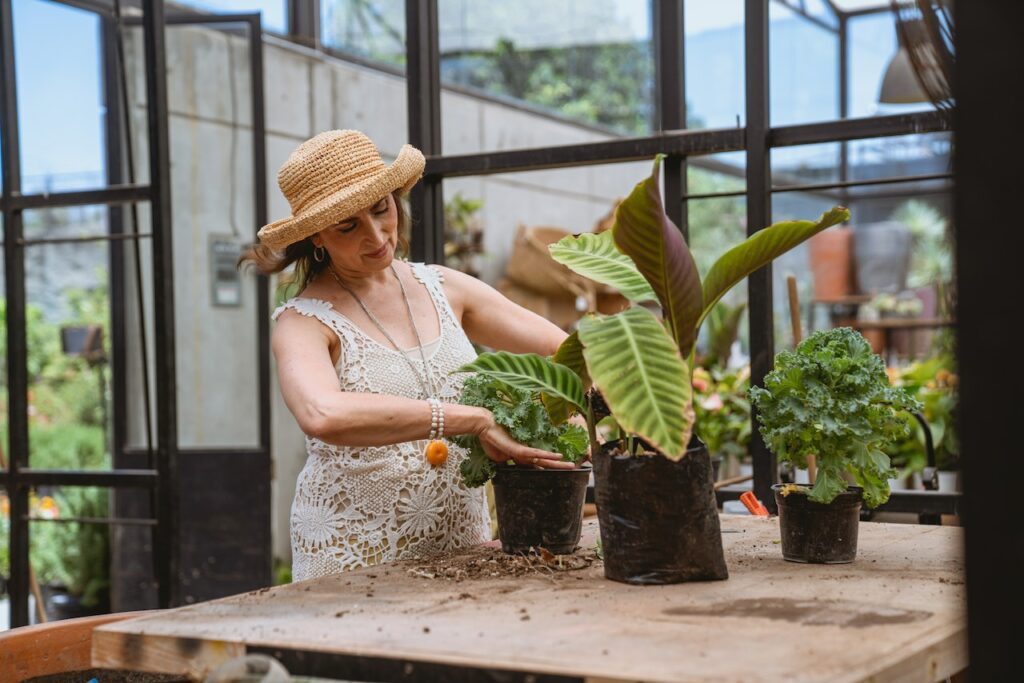Healthy routines are the key to a happy retirement!
“Health is the greatest wealth,” Jackie Chan once said. As we anticipate a fulfilling retirement, these statements ring true. Investing in our health may save us a lot by averting future medical treatments and prescriptions. Remember: savings go beyond money. In the big picture, good health gives us more time to enjoy our favorite hobbies with our loved ones.Let me tell you the best part: staying healthy doesn’t require a gym membership or pricey organic food. Simple, daily activities may transform our health. Food, sleep, mindfulness, and sustainable living all contribute to a better, richer existence.
Today, we examine seven healthy habits that boost health and pocketbook. If you’re ready to improve your quality of life, let’s explore these practices and find wellness’s route to wealth.

Healthy Diet
Mindful eating means health and prosperity, both of which can save you money in he long run.
To begin with, you can consider bulk grocery shopping. This strategy saves a lot on non-perishable things like grains, canned goods, and frozen food. Of course, bulk shopping requires effective meal prep. Preparing meals in advance ensures a balanced diet and reduces waste. You also minimize impulsive purchases and takeout. Batch cooking frees up time for fitness and leisure. It may seem challenging at first, but trust me – it will change your life!
This simple habit also reduces eating out and takeout orders. Overdoing these delicacies may hurt your health and finances. Restaurant and fast-food meals typically include harmful fats, salt, and sugar. Home-cooked meals help you manage ingredients and portion levels to meet your health objectives. Financially, one restaurant dinner may typically cover many home-cooked ones.
Healthy eating doesn’t need pricey superfoods or diet items. Numerous low-calorie, high-nutrient meals are affordable. Examples include legumes, whole grains, eggs, tinned salmon, and seasonal produce. Lentils provide inexpensive protein and fiber, while canned sardines provide heart-healthy omega-3 fatty acids. Seasonal vegetables promote freshness and nutritious richness while lowering grocery expenses.
Growing your own fruits and vegetables may be healthy and profitable for green thumbs. A home garden may save money, particularly on expensive herbs, tomatoes, and salad greens. Gardening also offers physical exercise, natural connection, and pesticide-free vegetables. If you live in an apartment, you may still grow several veggies and herbs in pots on a balcony or ledge!
Regular Exercise
Regular exercise boosts your health and income. Maintaining an active lifestyle without pricey gym memberships or exercise programs is possible with discipline and a good routine.
In our digital era, there are countless free apps to get started! Yoga, Pilates, high-intensity interval training, and strength training videos abound on YouTube too. Fitness apps and websites provide detailed training routines you may follow at your own speed. You get to save on gym fees and commute time by working out at home.
Outdoor exercising saves money just as well. Why not use nature instead of an expensive gym membership? Running, hiking, swimming at public pools or beaches, and using park exercise equipment are free ways to stay active. Nature’s peaceful vibe also helps your mental well-being (at least that’s what I noticed after one month of jogging in the woods).
Consider inexpensive home workout equipment. Dumbbells, resistance bands, yoga mats, and skipping ropes may be used for many activities and are affordable. This simple investment may save a lot on gym or class expenses.
Light exercise is another excellent but frequently ignored method. Consider walking or biking to work, using the stairs instead of the elevator, or taking a brief stroll at lunch. These practices increase fitness and save travel and parking expenses.
Preventive Health
Preventive care is frequently neglected in our busy lives. As Benjamin Franklin said, “An ounce of prevention is worth a pound of cure” – and I believe that with all of my healthy heart! Identifying and treating potential health issues early can save much money in the long run.
Preventive healthcare starts with regular checkups. Mammograms, colonoscopies, and blood pressure tests may uncover health risks early when they’re simpler and cheaper to treat. I know these checkups may seem pricey, but they save more expensive surgeries and treatments later.
Vaccinations are another crucial protective measure. Immunizations prevent influenza, pneumonia, and shingles in older people. Vaccines reduce treatment costs and hospitalizations. They also keep you healthy and energetic so you can go about your everyday routine.
Preventive dental care may save money. Regular brushing, flossing, and dental checkups help prevent tooth decay, gum disease, and other oral health issues that might need expensive root canals, fillings, or tooth replacements. Gum disease is linked to heart disease and diabetes; thus, good oral health benefits general health.
Finally, applying sunscreen to prevent skin damage is a cheap, healthy, and financially beneficial practice. Sunscreen prevents sunburn and skin cancer, an expensive illness. Preventing early skin aging saves cosmetic treatment costs.
Stress and Mindfulness
Maintaining physical, mental, and financial wellness requires mindfulness and stress management. Avoiding stress and practicing mindfulness helps prevent stress-related health issues, which can be costly to cure.
Mindfulness applications and internet materials are widely accessible in today’s tech-driven environment. These internet platforms provide beginner and advanced guided meditations, mindfulness exercises, and stress management approaches. These alternatives help boost emotional resilience, attention, and anxiety without expensive health getaways or personal sessions.
Nature offers free stress reduction and relaxation. Forest bathing, earthing, or just relaxing in a garden may decrease blood pressure, stress hormones, and mood. Nature’s calming impact is vital for mindful living.
Yoga and meditation are essential stress-management tools. Yoga’s careful breathing helps calm the mind and improve flexibility, strength, and balance. Meditation promotes inner calm and stress management. Online videos and directions make yoga and meditation free and accessible to everyone.
Journaling helps mindfulness and stress management. Writing about your thoughts, feelings, and experiences may help you recognize stressors and develop effective coping techniques. This activity requires just a notepad and pen. Easy-peasy, right?
Enough Rest
Adequate sleep supports our health and wealth. Good sleep strengthens immunity, mood, and cognitive function and reduces the risk of chronic illnesses, including diabetes and heart disease. Overall, poor sleep may cause health problems that need expensive care.
Quality sleep requires a good sleep environment. A calm, dark, and chilly environment is required. Blackout curtains, earplugs, and white noise machines may be needed. The long-term health advantages and possible savings from preventing sleep-related health disorders exceed the upfront expense.
Good sleep hygiene includes a regular sleep pattern. Going to bed and waking up simultaneously daily regulates your body’s internal clock, improving sleep. It’s free and healthy.
Reduce screen time before bed to improve sleep quality. Phones, tablets, and laptops produce blue light, which disrupts melatonin synthesis. A digital curfew an hour or two before bedtime may improve sleep patterns. This allows time for relaxing pre-sleep activities like reading or taking a warm bath, increasing excellent sleep.
Sleep aids like chamomile tea might be cost-effective for insomniacs. Chamomile tea might help you sleep because of its relaxing effects. Light stretching or yoga before bed, relaxing music, or lavender essential oil will help you sleep.
Hydration
Many people don’t realize hydration is vital to our health and wallets – and soda doesn’t count here! Good hydration enhances digestion, energy, skin, and physiological functioning. When done well, it’s a cheap and healthy habit.
Reusing water bottles benefits your health and pocketbook. Water makes it easier to stay hydrated. Refilling water bottles is cheaper than purchasing bottled water over time. It reduces plastic bottle waste and is more environmentally friendly. I love these reusable water bottles from Amazon because you can toss them in the dishwasher and measure your quantities precisely!
Replace soda, energy drinks, and store-bought juices with water to hydrate. These sugary drinks cause weight gain and other health issues like diabetes and heart disease. Water is healthier and cheaper than these beverages.
Of course, herbal tea hydrates well and cheaply too. Chamomile, peppermint, and rooibos teas are tasty and healthy alternatives to water. Chamomile tea aids sleep, while peppermint tea aids digestion. Herbal tea is both hydrating and healing.
Fruit-infused water adds flavor and nutrition to ordinary water. A water pitcher with cucumber, berries, or citrus slices makes a vitamin-rich, antioxidant-rich drink. It’s cheaper than purchasing flavored water or fruit juice and encourages water consumption.

Green Living
Sustainable living is the last habit that improves health and finances. Eco-friendly decisions help the world and save money.
Living sustainably includes saving energy at home. This includes turning off lights when leaving a room, disconnecting electronics, and using natural light wherever available. Energy-efficient equipment may lower your electric expenses over time. These activities lower your carbon footprint and improve the environment.
Public transportation or carpooling may also save money. Considering gasoline, insurance, and parking, public transportation is cheaper than car ownership. Carpooling saves money by splitting gasoline expenditures. These techniques reduce automobile traffic and air pollution.
Sustainable living relies on reducing, reusing, and recycling. Consumption reduction saves money. Reusing goods saves money too. Recycling reduces trash and conserves natural resources, saving money by maintaining our resources.
Finally, buying used or recycled things is a great way to live sustainably. Used clothes, furniture, and gadgets are typically cheaper than new ones. Buying used lessens demand for new goods, which minimizes production waste and resources.
Conclusion
If you made it this far, congrats! Now you know that healthy habits don’t have to be costly. The best health behaviors are simple, accessible, and inexpensive.
Healthy food, exercise, preventative healthcare, stress management, sleep, hydration, and sustainability all provide health and financial advantages. These activities improve our health and financial security.
However, change takes time, and it’s more sustainable to implement these practices gradually rather than all at once. Start with a regimen you like. You may develop healthier, richer habits over time.
According to billionaire businessman Warren Buffett, “Wealth is the product of a man’s capacity to think.” Making careful, educated health decisions may develop both health and financial prosperity. To your healthier, wealthier life!
Before you go… The perfect retirement comes one simple change at a time. If you want to improve your quality of life with minimal costs, I highly recommend our post on 8 Must-Have Amazon Finds to Spice Up Your Retirement!














